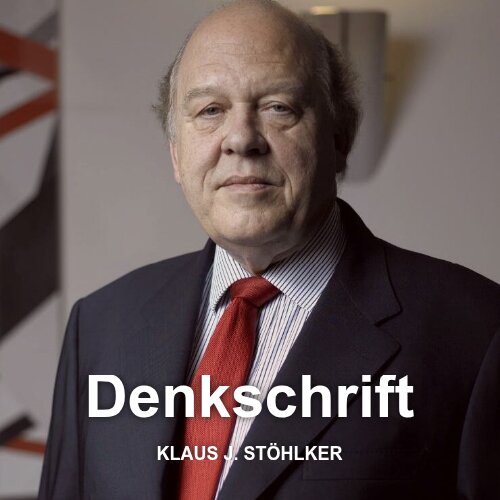Over the last few months, I have increasingly wondered about two things: Firstly, the ECB’s commitment to purchase the equivalent of 80 billion euros monthly of government and commercial (I suppose bank) debt, apparently again „for as long as it takes“. And, secondly, the total non-concern displayed by the political and financial world in the face of the inexorably growing indebtedness of just about everybody. I know, and so probably do you, that these debts – particularly those of many countries – will never be paid back in what in normal times, and normal commercial relations, is considered „paying back debts“, i.e. returning the original amount in equivalent money.
[simple-google-ads-ad-tag id=“ip_content_banner“]
Of course, I realize that paying back debts at original value already became unfashionable during the Seventies, when the last tie of all major currencies to gold was severed and when the respective central banks started to aim for a controlled annual inflation of two percent. And when – to add spice to the situation – commercial banks realised that the habit of basing credit on savings was really stone age thinking, and began to produce unlimited amounts of credit money, thus exercising the privilege of seignorage previously reserved for central banks.
So, if these debts were to be paid back at all, it would be at much less than the original real value; that is guaranteed. That alone will allow politicians to view the debt problem with a lot of equanimity – as they apparently seem to. And they are right, even more so than they know. There are really no reasons why they should not only not worry about repaying debt the modern way (i.e. in invisibly devalued form). They will not need to pay them back at all, forever; and they can continue to spend more than they earn, forever. (Forever may be an exaggeration but for many, many years.)
Let me explain. A few months ago I happend to read – as an aside in the context of an interview with William White (39 years at BoE, Bank of Canada, BIZ) – what amounted to an eye opener. Asked the question „ If one valued the foreign curreny reserves of the Swiss National Bank at market, its equity would be eradicated; is that a problem?“ Answer: „No (…) the rules for a central bank are different from those for a commercial bank. It can function without equity.“ (1) Virtually the same view was expressed very recently by Larry Eichengreen. „A central bank can function with negative equity (…) many central banks have done so already in the past. And equity can be built based on the privilege of seignorage (the right to create money) and the implicit interest return on the newly created money.“ (2)
My conclusion: A central bank (like e.g. the ECB) can buy up any amount of public or commercial debt … and throw those pieces of paper (or electronic pulses if you prefer) into the wastepaper basket. Or use them to light the chimney piece in one of their meeting rooms; and just forgive the corresponding debt and interest due. True, this calls for an eventual recapitalization which , of course, can also be financed by debt, or maybe just by pressing a particular button. But those lucky governments suddenly find themselves back within the originally agreed sixty percent of GDP limit; and if the ECB feels particularly forthcoming, maybe only at thirty or forty percent: the game of ever increasing indebtedness can be resumed, for many years. And nobody, no financial institution, suffers in any way. A miracle.
A less burdensome and politically promising way is that the ECB stashes away those debts and lets the respective government(s) confidentially know that the debt is – in reality but not strictly legally – forgiven and free of interest; provided the particular government „is a good boy“ (like voting for or against whatever within the EU political system). The ECB’s balance sheet remains virginal, and its political clout is fabulous: Any governmental misbehaviour can be punished by bankruptcy and/or involuntary exit from the Eurosystem. Finance and prime ministers will beg the ECB on their knees not to be punished thus cruelly, and promise to behave better, with more understanding for the overreaching importance and significance of the EU ideals und policies.
Unlikely? No. Possible? Yes. Probable? Yes.
(1) Finanz+Wirtschaft, January 17, 2016, p. 17 (my translation from German)
(2) Finanz+Wirtschaft, May 28, 2016, p. 19 (my translation from German)


Diese Sicht der Dinge sollte der grossen Öffentlichkeit zugänglich gemacht werden! Die ECB sollte aufgefordert werden, zu reagieren, und zu erklären, wie und wann sie denkt, die Schuldenberge abbauen zu können.
Ihre Lösung 1 ist auch bekannt als Helikoptergeld. Keynes on steroids. Am Ende stehen Weimar, Simbababwe und Venzuela.
Lösung 2 wird ja schon praktiziert von Draghi und Merkel. Geht politisch nur eine bestimmte Weile, dann wird der Widerstand gegen die dunklen Mächte zu gross.
Hopp Brexit!
…und was eben auch nicht stimmt: „recapitalisation can be financed by debt or pressing a button…“ – Falsch, Herr Berater. Falls die Zentralbank Geld herausgibt, dann verlängert sie bloss die Passivseite ihrer Bilanz, kann aber das Loch auf der Aktivseite nicht ausgleichen. Nimmt die Zentralbank von aussen Schulden auf, dann verlängert sie bloss die Bilanz. Das Loch bleibt ebenfalls bestehen. – Was aber sicher hilft, ein Loch zu stopfen bzw. Reserven anzuhäufen (wenn auch im Verhältnis zur heute verrückt aufgeblasenen SNB-Bilanz eher marginal) sind… NEGATIVZINSEN….
In Anbetracht des übrigen Artikels verstehe ich die Aussage des Abschnitts „My conclusion“ ironisch. Das Gegenteil ist gemeint, was eigentlich wörtlich darin steht.
Der zweite Teil der „conclusion“ ist der wahrscheinlichste. Ein Abkommen nicht nur der EZB, aber auch der FED und der Bank of Japan über einen Schuldenerlass der Zentralbanken für Staatsschulden ist eine realistische aber hoch explosive Lösung.
Staatenschuld würden so ausserhalb des Systems behandelt und ein Wettbewebsvorteil von Staaten gegenüber andern Marktteilnehmer in Stein gemeisselt. Andere Marktteilnehmer müssten sich dadurch übervorteilt fühlen und die freie Marktwirtschaft sowie das Nach-Bretton-Woods System ernsthaft in Frage gestellt.
Eine neue Form der manipulierten Staatswirtschaft wäre kreiert.
Die Reaktion der grossen Zahlungsbilanzüberschussblöcke ( China und Arabien) wäre interessant zu entdecken.
Die EZB müsste einen Schlüssel finden um Sparerstaaten gegenüber den Grossschuldnern fair zu behandeln.
Eine Revolution also, aber eine auf mittlere Sicht wahrscheinliche.
@Walter Abegglen
Dear Mr. Abegglen
The statement that „…equity can be built based on the privilege of seignorage..“ is simply false.
It is as falses as the pretention „…that a central bank can operate with negative eyuity.“
Why?
Equity could only be built up by issuing money if central bank money would be an asset of the central bank.
However, central bank money is in contrary a debt of the central bank. As a result, equity is not increased by issuing money and therefore there is no seigniorage by issuing money.
Also, if equity of a central bank is negative, creditors of the central bank will have to write off their investments at the central banks and therefore may go bankrupt themselves as a result of negative equity of the central bank.
BoE, BIZ and Nobel Laureates obviously pretend things they do not really understand. They do not know how to read a balance sheet of a central bank properly.
Kind regards
Marc Meyer
Und was halten Sie davon, dass die EZB nun direkt Anleihen von ausgewählten Unternehmen kaufen will?
Also nicht mal über den Sekundarmarkt?
Das heisst, Goldman-Draghi entscheidet welchen Unternehmen wieviel geschenkt wird.
Anders ausgedrückt direkte Subvention einzelner auf Kosten der europäischen Steuerzahlern…
Und nebenbei auch hier:
Warum müssen Staaten eigentlich (bei normalen Zinsen) auf Geld der eigenen Währung, das sie mittels einfacher gesetzlicher Änderung selbst schaffen können, Zinsen bezahlen?
Einverstanden. Der Goldmanboy macht seine Gesetze selbst. Joggelis in Karlsruhe hin oder her.